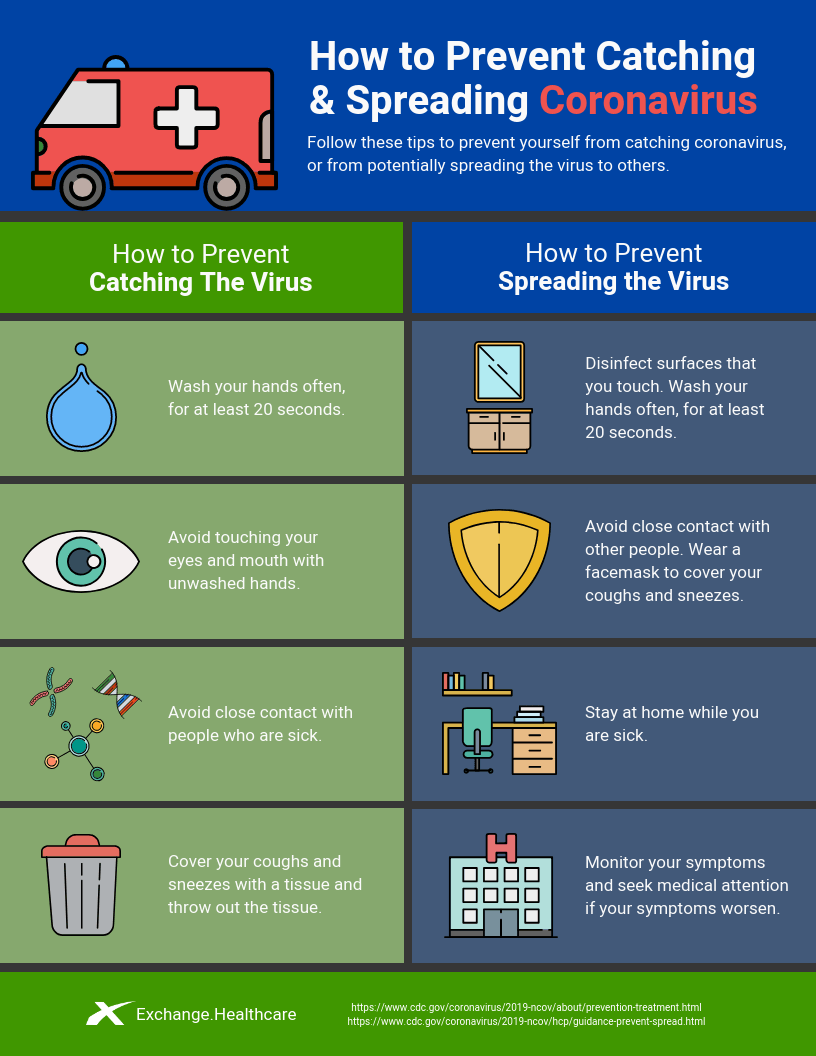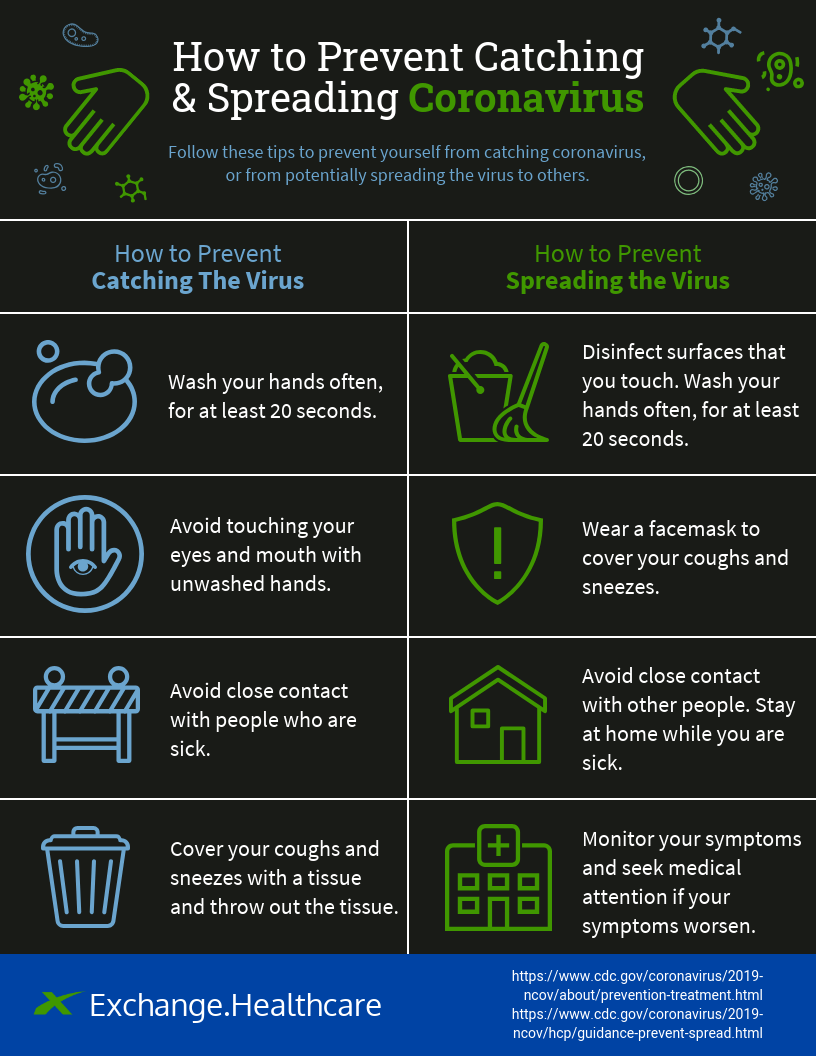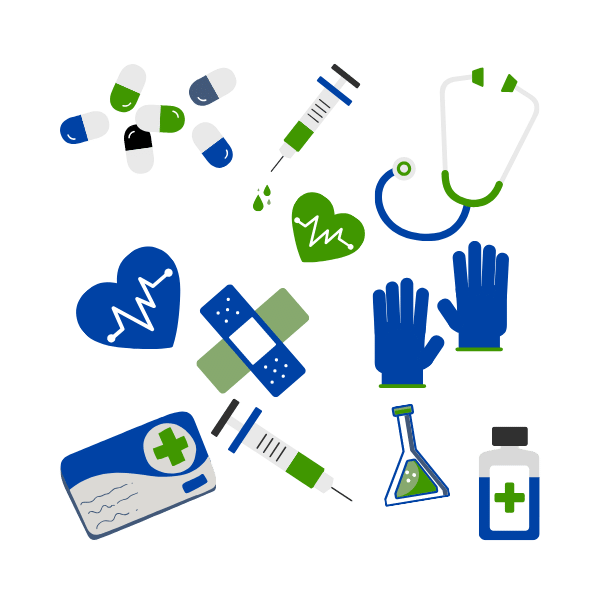The biggest question on most people’s minds these days is how they can stay safe with the dreaded coronavirus seeming to lurk on every surface around them. With no vaccine and no known cure at present, the best way to deal with this virus now according to health officials around the United States is to practice good hygiene techniques and to keep yourself and your home sanitized. This handy guide of coronavirus tips and cleaning techniques will help you make the right decisions during this critical time so that you can get through the next few weeks and months without any sickness and without worrying about spreading the virus to others.
What Can Kill Coronavirus?
Before you get started with cleaning yourself and your home thoroughly, it is vital to know what kills the coronavirus. Not using the right method or product can lead you to a false sense of security as you mistakenly think that you and your home are safe. There have been several myths that cold weather, a hot bath or even a hand dryer can kills the virus. However, according to the World Health Organization, this is faulty logic.
Instead, you need a cleanser that can break through the outer shell of the virus to kill it. The lipid barrier can be partially destroyed with simple friction, such as you might use during a thorough washing of your hands. However, bleach, rubbing alcohol with at least a 70 percent alcohol content, many prepared household disinfectant solutions and even soap and water can be used to remove the virus from surfaces and to kill coronavirus.

How to Prevent COVID-19 and Keep from Spreading It
Your primary goals are to keep yourself from getting sick with COVID-19 and to prevent spreading the virus to others. To accomplish this, focus on the following tips.
- Wash your hands frequently for at least 20 seconds.
- Keep your unwashed hands off your face.
- Stay away from people who are visibly ill.
- Cover coughs and sneezes with a facial tissue.
- Disinfect high-touch surfaces frequently.
- Wear a face mask if you are sick and must be around others.
- Stay at home if you are sick.
- Seek emergency medical care if you experience life-threatening symptoms.
How to Sanitize Yourself
The best way to prevent illness is to keep your hands clean. Without thinking about it, you probably touch your face dozens of times every day. While trying to keep your hands off your face is a noble goal, it will be virtually impossible to accomplish perfectly. Therefore, you must keep your hands sanitized.
The good news is that simple soap and water, which can be readily found around any home, is the most effective way to get the coronavirus off your skin. However, you must wash your hands for a minimum of 20 seconds to ensure that you have reached all sections of your hands, have used enough friction to break up the virus and have let the soap do its job. Both liquid soap and bar soap are equally effective, and you can also use dish soap and foaming soap on your skin. Never use chemical disinfectants, such as Lysol, on your skin. In addition, you will want to start applying more moisturizer on your hands because regular hand washing can be very drying and can lead to cracked or broken skin.
If soap and water is not available, you can use a prepared hand sanitizer that is made with at least 60 percent alcohol. You must rub this all over your hands and allow it to dry completely while rubbing your hands together for complete sanitization.
What to Use to Sanitize Your Home
Other than your hands, the most important things to keep clean during the fight against the coronavirus are high-touch surfaces throughout your home. Once again, you have many options for what you can use. Perhaps the most effective sanitizing option is household bleach. You should make sure that the bleach you are using is unexpired, and you should always dilute it to approximately four teaspoons of bleach to one quart of water. However, remember that bleach can be very harsh on certain surfaces and that the fumes can be noxious. Therefore, test it out on a small corner first, and ensure proper ventilation in the room before using it to sanitize coronavirus.
You can also use alcohol-based cleaning solutions that contain at least 70 percent alcohol and many household disinfectants, including those on the Environmental Protection Agency’s disinfectant list. Of course, if you have gone to the store lately, you probably quickly discovered that disinfectants, bleach and other cleaning products purported to kills viruses are being sold at a premium or have completely disappeared from the shelves. Thankfully, you have another option that may not be easier but that is just as effective. According to the Centers for Disease Control and Prevention (CDC), soap and water is perfectly effective for killing the coronavirus on household surfaces.
Tips for Disinfecting Your Home
Although the World Health Organization does not have exact numbers on how long the coronavirus can live on surfaces, it appears that it can last from several hours to several days. In addition, the virus will persist longer on hard surfaces than it does on soft surfaces. Therefore, it is important to clean high-touch areas in your home every day and to follow the directions on the disinfectant that you are using to ensure that it provides the maximum result. For example, many disinfectants must sit for 10 minutes to do their job correctly. Some of the most important high-touch surfaces that you should be focusing on cleaning these days include the following:
- Doorknobs
- Railings
- Lightswitches
- Kitchen and bathroom counters
- Faucets and toilets
- Tables
- Remote controls
- Computer keyboards and mice
- Desks

How to Sanitize Your Home When You Have a Sick Family Member
If you have a family member at home who is self-quarantined after being diagnosed with COVID-19 or who is suspected to have COVID-19, it is important to follow all of these tips to sanitize yourself and sanitize your home even more precisely. The sick individual should limit himself to one or two rooms and should use a dedicated bathroom if possible. You should clean high-touch surfaces often and should avoid sharing such items as dishes and linens with the sick individual.
You will also need to consider how you clean soft surfaces and laundry and what you do with trash if someone is sick with the coronavirus in your home. You should be able to use a soap-and-water solution on most soft surfaces, such as upholstery and curtains. Some items may even be easily laundered in your machine. When doing laundry, wear disposable gloves if you have them, or wash your hands well after handling the dirty clothes. Avoid shaking the items to reduce the risk of spreading the coronavirus to other areas of your home. In addition, use the hottest water possible to do your laundry. Feel free to wash your clothes along with the sick person’s clothes or linens as long as you are using hot water and appropriate amounts of detergent. Finally, use a dedicated garbage can for the sick individual’s trash, and wear disposable gloves when emptying the trash.
Even though the coronavirus is so virulent, you can reduce your risk of becoming sick by following these coronavirus tips. Proper hygiene and thorough household cleaning are vital to sanitize coronavirus and limit the spread of COVID-19.



About mins ago